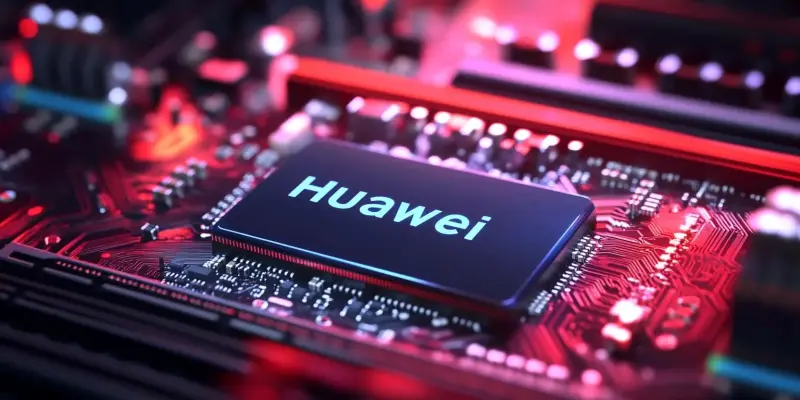In a rapidly evolving tech landscape, Huawei’s impending launch of the Ascend 910C AI chip marks a significant milestone that has the potential to challenge NVIDIA’s stronghold in the AI hardware market. Huawei’s advancements in this field are noteworthy, especially as China continues to enhance its in-house technological capabilities amid US-imposed regulations and sanctions. This development could signify a pivotal moment in the ongoing technological competition between these two global powerhouses.
A Revolutionary AI Chip
Huawei’s new AI chip, Ascend 910C, is set to offer compelling performance metrics that could rival NVIDIA’s top-tier offerings. The 910C claims to achieve 60% of the performance of NVIDIA’s #00 Hopper AI accelerator in inference tasks, which is a noteworthy feat. This chip, developed entirely in-house, is built using SMIC’s 7nm process and features an impressive 53 billion transistors. Furthermore, it supports cross-compatibility with widely used compute stacks like NVIDIA’s CUDA, making it easier for developers to transition to Huawei’s ecosystem.
China’s Rapid Progress
The launch of the Ascend 910C underscores China’s significant progress in the AI sector, reflected in innovations and hardware advancements. China’s AI industry has not only kept pace with Western models such as OpenAI’s but is also pushing the boundaries of computational power with breakthroughs like the Ascend 910C. This progress suggests that China is catching up and might even take the lead in certain areas of AI development.
Strategic Timing
Huawei’s strategic choice to launch the Ascend 910C around the time of NVIDIA’s GTC 2025 keynote, where the latter plans to reveal its next-generation architectures, underscores a direct challenge to NVIDIA’s market dominance. This timing is expected to have a substantial impact on the market, potentially causing a negative reaction from investors towards NVIDIA. The competition is heating up, with both companies vying for leadership in the AI hardware field.
Geopolitical Implications
NVIDIA’s revenue has already been significantly affected by US regulatory measures, and the threat of stricter regulations looms large. The Trump administration’s consideration of more stringent rules on the sale of NVIDIA’s AI chips to specific nations could further affect the company’s financial performance. This development highlights how geopolitical dynamics and regulatory frameworks are increasingly influencing the competitive landscape of the AI hardware market.
Innovation Amidst Regulatory Pressures
From a broader perspective, Huawei and China’s relentless progress illustrates how regulatory pressures can often drive innovation rather than hinder it. Companies like DeepSeek are leveraging Huawei’s advanced hardware, positioning themselves advantageously in the market. This ongoing scenario highlights the ingenuity and adaptability of Chinese firms in overcoming challenges posed by international sanctions and restrictions.
Looking Forward
In a swiftly evolving tech landscape, Huawei’s upcoming release of the Ascend 910C AI chip represents a major milestone that could challenge NVIDIA’s dominance in the AI hardware market. Huawei’s progress in this sector is particularly noteworthy in light of China’s ongoing efforts to build its domestic technological capabilities, especially given the backdrop of US-imposed regulations and sanctions. This latest development could be a defining moment in the escalating technological rivalry between these two global giants. As Huawei continues to push forward with its advancements, the competition in the AI hardware market is set to become even more intense. This move underscores China’s determination to be self-reliant in the tech field and chip away at the US’s influence. By advancing its AI chip technology, Huawei is positioning itself as a formidable player in the global tech arena, which may lead to significant shifts in market dynamics and power balances. The tech world will be keenly watching how this new chapter in the Huawei-NVIDIA rivalry unfolds.

